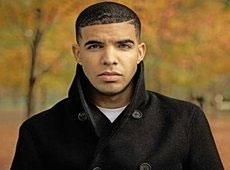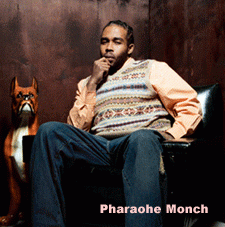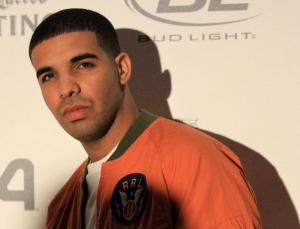 Do we hate Drake? My boy Professor Marc Lamont Hill does and he explains why in a recently penned article featured on TheLoop21.com. Here, I can understand many of Hill’s sentiments including; Drake being talented but overhyped, him being used as a slick marketing tool for a corporate backed music industry which I should add, is in rapid decline and him taking up precious space in the urban sound scape to the exclusion of ‘more talented’ emcees. But, with all that being said, I think Hill misses a couple of fundamental points about Hip Hop.
Do we hate Drake? My boy Professor Marc Lamont Hill does and he explains why in a recently penned article featured on TheLoop21.com. Here, I can understand many of Hill’s sentiments including; Drake being talented but overhyped, him being used as a slick marketing tool for a corporate backed music industry which I should add, is in rapid decline and him taking up precious space in the urban sound scape to the exclusion of ‘more talented’ emcees. But, with all that being said, I think Hill misses a couple of fundamental points about Hip Hop.
First, and foremost, Hip Hop, in particular the art of emceeing, at the end of the day is a form of communication where the only questions that matters are; ‘Do you connect with your audience’ and ‘Did you move the crowd’. Drake has clearly done this-like it or not. We shouldn’t begrudge him.
Now, we can argue and assert Drake is lacking in rhyme skillz or he’s not that good of a singer. We can as Hill did, equate him to being a one man ‘boy band’. We can say all that and any number of negative things, but last I checked there’s a significant number of people residing in our respective hoods all across the country who are checking for this cat. They view him differently. Everywhere I go I’m hearing folks bump his music. I’m seeing his shows sell out and in general I’m seeing him generate a type of excitement that I haven’t seen in a very long time. In 2010 Drake is ‘that guy‘.
 As far as Drake’s fans are concerned his rhymes and singing are just fine. His audience finds him compelling, entertaining, inspiring and more importantly relevant. The question before us all is ‘Are we relevant?‘ Are we relevant to Drake’s audience? And if not why not? and should we be? And if we wanna connect what’s it gonna take to be so?
As far as Drake’s fans are concerned his rhymes and singing are just fine. His audience finds him compelling, entertaining, inspiring and more importantly relevant. The question before us all is ‘Are we relevant?‘ Are we relevant to Drake’s audience? And if not why not? and should we be? And if we wanna connect what’s it gonna take to be so?
This brings me to my second point…Hip Hop is not a spectator sport. If someone feels Drake is undeserving of his audience and he’s taking up valuable space and is a big waste of time, from a Hip Hop perspective there’s only one thing you can really do..step into the arena, show & prove’ and win that audience back.
Now, one may make the excuse about how that’s hard to do because Drake has celebrity endorsements, a million dollar marketing budget and the full weight of the industry pushing him. But this is Hip Hop and we have long prided ourselves as being able to do far more with less. In this space, no obstacle is insurmountable. This a culture that has creativity, resourcefulness and hustling as key building blocks. To quote producer Rick Rock..we create paint where there ain’t or to quote Shock G of Digital Underground, we can make a dollar out of 15 Cent or as they say in church. ‘We can make a way out of no way’. So in 2010 if we’re finding ourselves battling the commodification of culture, and the dumbing down of audiences with artists and culture being made disposable, we who identify with Hip Hop should be able to effectively battle back and counter this. Hence anyone who feels Drake is misleading his crowd, in this age of technology where Youtube, Ipads, blogs and twitter are abundant engaging Drake’s audience should not be difficult. Winning them over? Well, that’s the hard part.
The bottom line is this.. If Drake is lazy, as Professor Hill pointed out, and not living up to the full potential of his talents as an artist, can the same be said about us? Are we equally as lazy and not reaching our full potential as members of the Hip Hop community? We’re demanding that artist like Drake step up, but collectively speaking what are we doing to be meaningful game changers?
This culture has been around damn near 40 years and with all our entrepreneurial brilliance, insightful punditry, academic scholarship, street savvy and swagger, we still have not created a music business infrastructure that is far superior and eclipses the corporate backed one that has made a superstar out of Drake but at the same time has ruined and exploited a music and culture we hold dear. Where’s our superstar making machine? Why haven’t we created our own industry where artist like; Black Thought, Jean Grae and Lupe Fiasco are everyday un-compromised and un-apologetic occurrences?
After 40 years are we looking for jobs in this industry or creating our own? And when I say create..I mean creating business that are not mere extensions dependent upon a corrosive industry. Are we about the business of creating something that is on our own terms, owned by us and is on par with the potential heights we want artists like Drake to reach?
 Finally let’s get to the crux of this issue…If artists like, Pharaoh Monche or Lupe Fiasco who Hill mentions in his piece were the primary ‘go to’ figures that everyone in the hood was clamoring over, then any sort of discussion around Drake would be irrelevant. The concern is this-Drake is getting shine in the community, leaving many to wonder why those who are arguably more skilled and have ‘deeper meanings’ to their songs are not. How is there this disconnect and what do we do to fix it?
Finally let’s get to the crux of this issue…If artists like, Pharaoh Monche or Lupe Fiasco who Hill mentions in his piece were the primary ‘go to’ figures that everyone in the hood was clamoring over, then any sort of discussion around Drake would be irrelevant. The concern is this-Drake is getting shine in the community, leaving many to wonder why those who are arguably more skilled and have ‘deeper meanings’ to their songs are not. How is there this disconnect and what do we do to fix it?
Is it as simple as extra airplay? Does it come down to extra marketing dollars? Does this boil down to us exposing Drake’s audience to what some consider ‘better caliber’ artists in hopes that they will suddenly see the light and find the Drakes of the world less desireable?
Who’s to say that the Drake fan is not already well aware of the Talibs, Mos Defs, Dead Prezs and other conscious artists? Perhaps they know them but at the end of the day they simply prefer Drake. That’s a nagging reality many of us are not ready to face because we’re left either wondering how we’re out of step with large portions of the community we speak and rep for.. and more importantly we’re left questioning our influence or lack thereof. Or we can sum it up and face the fact that we may haven’t reached our full potential at least in the arena of communicating.
That can be a blow to our egos and toss a monkey wrench into our assumptions and expectations..It has to be bothersome when you’re an elder in the community who teaches, counsels or offer leadership and guidance to younger folks, only to find at the end of the day they are pretty much rejecting our musical offerings. It’s hard not to question what that says about us or to not take it personal when those you help rear let you know ‘they ain’t feeling Public Enemy, Wu or even 2pac.
I recall when I was younger, my mom and older cousins would tell me..’Live long enough and I’ll come to see what they were talking about... Many of us are at that moment in our lives. When I see younger cousins emphatically embracing Gucci Mane and Wacka Flocka and I know they were raised on a steady diet of KRS, PRT and X-Clan, I can now better understand why my elders were so upset when they saw us choosing turntables over ‘musical instruments.
Now I understand why they were perplexed when we said we preferred Grandmaster Flash or Afrika Bambaataa over Earth Wind and Fire, Kool and the Gang and even Marvin Gaye. Many of us as youngsters simply did not see the relevance as to why those who were older held these artists as sacred. To them our rejections were blasphemous. We essentially were dismissing the sound track to their lives and not building upon a cultural legacy they were a part of and may have even helped lay down.
From our stand point as youngstas, we discovered something that spoke to us and had meaning and were seeking to build our own legacy. When I was younger I didn’t analyze things, this way, but as I got older I’ve come to realize, that there was too much preaching and not enough teaching. The more our elders preached that this ‘Hip Hop’ thing we were into was huge step backwards the more we stuck with it. Perhaps they should’ve sat down and built with us. Perhaps they should’ve helped nurture our curiosity and passion. We made lots of mistakes along the way that could’ve been avoided had we had the nurturing, but eventually we come to discover our own worth and brilliance and a perhaps a few of the lessons they were trying to impart on us.
I guess the question at hand that I’m gonna keep coming back to is have we ever reached our full potential? Not just Drake , but all of us.. Have we all come realize and act upon our brilliance? These humbling questions to answer because on many levels we may sadly discover to the degree that we find Drake to be mediorcre and lacking or brilliant and great, it may in fact be an accurate reflection of who we are as a Hip Hop community. Drake will change when we do. It’s either that or accept the fact we simply can’t see what they can see..
-Something to ponder-
-Davey D-
http://www.youtube.com/watch?v=J5uqPUZxZHg
I hate Drake. There, I said it.
by Marc Lamont Hill
http://theloop21.com/society/i-hate-drake-there-i-said-it
For the past two years, Drake has been one of the hottest acts in hip-hop. From high profile guest appearances to a ubiquitous presence on urban radio, it is nearly impossible to follow hip-hop and not get regular doses of the Toronto-born rapper.
I hate him.
There I said it.
To be clear, I don’t have any personal beef with Drake. While I’ve never met him, I don’t doubt that he’s a decent and well-intentioned person. Still, I hate him. And you can’t stop me. Why? Because he represents several things that I find troublesome about the current mainstream hip-hop scene.
First, there’s the music. While there’s no doubt that Drake is very gifted— even if he too often wastes his talent making radio-friendly confection—he leaves much to be desired as an rapper. Instead of relying on his intellectual and artistic gifts, he too often resorts to tired concepts, lazy punch lines and predictable one-liners. This wouldn’t be such a problem if he weren’t constantly being hailed by the rap world as a dope lyricist rather than what he actually is: a pop song writer.
To call Drake an MC in a world that still includes Black Thought, Lupe Fiasco, Jean Grae, Pharoah Monch, or even Eminem is an insult to people who think. As evidenced by his humiliating Blackberry “freestyle” on Funkmaster Flex’s Hot 97 radio show, Drake has mastered neither the art, science, nor stylistic etiquette of MCing. From his frantic attempts to stay on beat to his inability to improvise even slightly, Drake represents a dangerous historical moment in hip-hop culture where rapping has overshadowed other dimensions of MCing, like freestyling, battling, and moving the crowd.
http://www.youtube.com/watch?v=-uKSeyYFGRo&feature=player_embedded
In addition to his lyrical deficiencies, there is something naggingly inauthentic about Drake. And nope, it’s not because he’s a half-white Canadian named Aubrey whose original claim to fame was playing Jimmy Brooks on the teen drama Degrassi High. While such information does nothing to enhance his street bona fides, it certainly doesn’t merit missing him outright. After all, some of hip-hop’s greatest talents (whether they admit it or not) have come from a variety of privileged race, class, and geographic backgrounds. Also, despite being a running buddy of Lil Wayne, Drake’s raps don’t include drug dealing, poverty, violence, or any of the other stale tropes of ghetto authenticity found in mainstream hip-hop narratives. Still, his persona and music feel like the product of industry cynicism rather than an organic outgrowth of hip-hop culture.
From his faux-Southern accent to his corporate-funded “street buzz,” Drake has been perfectly prepped to become hip-hop’s version of a boy band. Take one look at Drake and you can almost hear the calculations of greedy record execs looking for the next crossover act: Preexisting white fanbase: check. Exotic Ethnic Background: check. Light Skin: check. Celebrity Cosigners: check.
And the list goes on… Sadly, such paint-by-the-numbers thinking not only forces Drake into the public sphere, but also excludes more gifted artists who don’t fit neatly into the prefigured boxes of industry honchos.
 While the aforementioned reasons are sufficient to warrant my Drake hate, my biggest issue stems from his decision to sign with Universal Motown in June 2009. At the point that Drake signed the deal, he had already become one of the hottest rappers in the country. In addition to high visibility, Drake already had an independently functioning infrastructure around him for full-fledged marketing, promotion, and distribution of future projects. In other words, as DJ Skee pointed out “Drake had already successfully done everything a major label could by himself.”
While the aforementioned reasons are sufficient to warrant my Drake hate, my biggest issue stems from his decision to sign with Universal Motown in June 2009. At the point that Drake signed the deal, he had already become one of the hottest rappers in the country. In addition to high visibility, Drake already had an independently functioning infrastructure around him for full-fledged marketing, promotion, and distribution of future projects. In other words, as DJ Skee pointed out “Drake had already successfully done everything a major label could by himself.”
Instead of seizing the moment, Drake, in a move that violated the adventurous entrepreneurial spirit of hip-hop, played it safe and went with a traditional deal. Unlike artists of lesser stature, Drake had an opportunity to thumb his nose at a record industry built on the unmitigated exploitation of artists. By running back to the plantation, Drake squandered a critical opportunity to not only build his own empire, but to create new possibilities for an entire generation of artists.
Am I being too hard on Drake? Am I holding him to too high a standard? Am I ignoring the fact that there have been “Drakes” in every generation? Am I a grouchy hip-hop oldschooler still mad that A Tribe Called Quest broke up and Rakim no longer gets radio play? The answer is probably “yes” on all fronts. Still, I maintain my position, as well as my right to hate Drake. And you can’t stop me.
Whew! I feel better now. How about you?
Marc Lamont Hill is Associate Professor of Education at Columbia University. He blogs regularly at MarcLamontHill.com. He can be reached at marc@theloop21.com.


